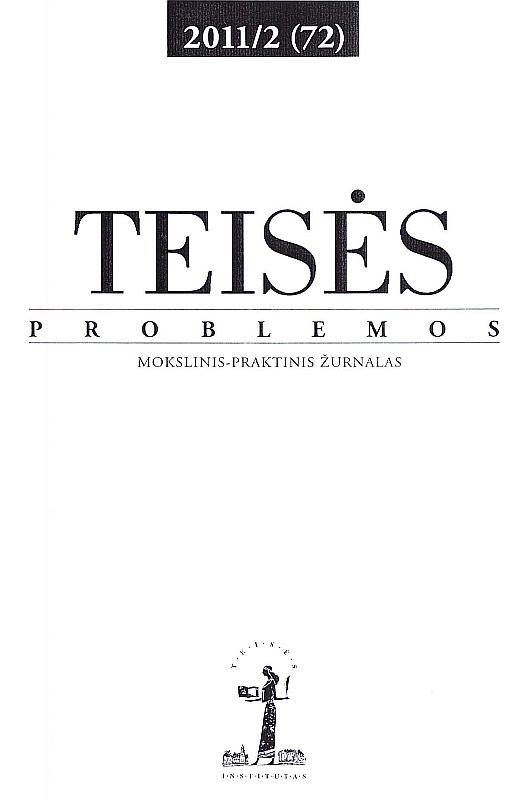Bendruomenės vaidmuo nusikalstamumo prevencijoje: užsienio šalių patirties analizė
Community Role in Crime Prevention: Foreign Practice
Author(s): Simonas NikartasSubject(s): Criminology
Published by: Lietuvos teisės institutas
Summary/Abstract: This article is based on materials of foreign researches and presents an analysis of the role of community in crime reduction. The article is focused on structural elements of the community, such as (1) informal social control, (2) strong community-based (social) relations, (3) and internal potential of community resources (self-sufficiency) within the framework of a concept of strong social ties in a community. Informal social control is an element of society directly related to crime and consequently is a central scientific research topic. The effectiveness of informal social control depends on different factors in the community. Presumption that strong social bonds in the community ensure an effective social control had prevailed in academic literature for a long time. However, the latest studies have shown that informal social control is often weak in communities that are characterized by strong social cohesion. Misinterpretation of the role of social relations was caused by abstracting the social bonds, inaccurate perception of their role in a structure of social capital and oblivion of cultural sphere as a factor of social control. The article also discusses risks of strong social ties on a practical level. Research has revealed that in certain cases strong community ties may foster social isolation, intolerance and discriminatory behaviour regarding different social groups, disregarding interests of local population in favour of the goals of a smaller group that identifies itself as a community. These theoretical and practical problems led us to reconsideration of the role of community or its elements and to provision of alternative approach which has also been discussed in the article. Firstly, research has revealed that weaker social ties can help to ensure an effective social control and to facilitate the circulation of social and economic resources among the local population. Secondly, the role of the key factors of the informal social control should be acknowledged not to strong social ties but to people mutual trust and willingness to solve their local problems together (Sampson’s collective efficacy). Thirdly, for the effective social control (crime prevention) vertical relationships to transmit the wider social and economic resources are inevitable. Importance of the relation between the formal and informal social control must be mentioned: on the basis of scientific studies it can be assumed that informal control is dependent on the quality of performance of the formal control institutions and their approach to problem solving in a local population.
Journal: Teisės problemos
- Issue Year: 2011
- Issue No: 72 (2)
- Page Range: 63-94
- Page Count: 32
- Language: Lithuanian

